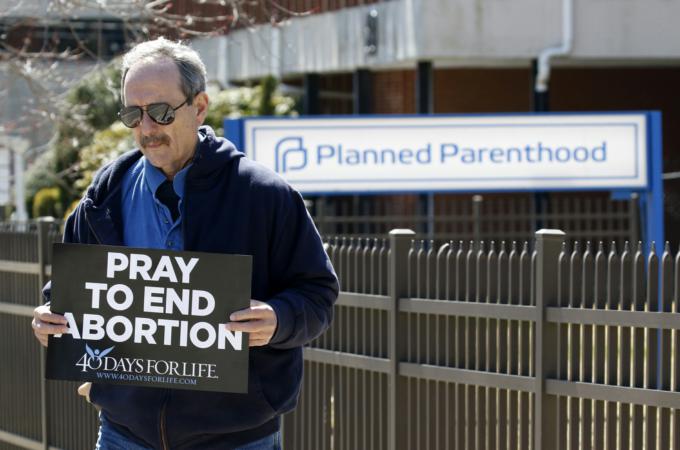Abortion at the extremes
One of the crazier features of politics these days is that opponents of our quixotic president seem to have themselves become unhinged: when he cuts federal funds to Planned Parenthood, and through his Supreme Court appointments says he wants to undo Roe v. Wade, the 1973 Supreme Court decision that effectively legalized abortion throughout the country, the abortion industry and its legislative allies propose to outdo Roe as a matter of statutory law. And thus in Massachusetts they have proposed "An Act to remove obstacles and expand abortion access (S No. 1209)."
The bill clearly states that "the Commonwealth shall not interfere with a person's personal decision and ability to prevent, commence, terminate or continue their (why not "her?") own pregnancy ... (and) shall not restrict the use of medically appropriate methods of abortion or the manner in which medically appropriate abortion is provided."
But the central holding of Roe, as authoritatively interpreted by the U.S. Supreme Court in Planned Parenthood of Southeastern Pennsylvania v. Casey almost 30 years ago in 1992, was prior to fetal viability, the state could place no "undue burden" or "substantial obstacle" on a woman getting an abortion. This is significantly different from the proposed bill's prohibiting any interference whatsoever on a woman's terminating her pregnancy.
Among other things, the bill would eliminate the requirement currently in Massachusetts law for at least one parent to consent to abortion for minors. Although this parental involvement can be easily circumvented by going to court for a judicial bypass order, which are granted as a matter of course to young women under 18 in Massachusetts, this eminently reasonable requirement galls Planned Parenthood and company for the simple reason that it puts an adult, preferably a loving parent rather than a bureaucratic judge, between a vulnerable girl and the abortion clinic's cash register. Therefore, the parental consent law must be repealed, however extreme that might sound.
My thoughts also go to the recent film "Gosnell," which relates the arrest and trial of a notorious abortionist in Philadelphia, allowed to practice for decades, who was finally tried and convicted for the murder of a number of viable infants that he delivered before snipping their spinal cords (and oddly preserving their infant feet in jars). He received a life sentence, which he agreed to as part of a plea bargain in order to avoid a possible death sentence. His defense was that he was just completing the abortions that women had asked him for.
Arguably, the Roe bill in Massachusetts could legalize infanticide as an abortion technique, since it protects abortions from interference up to the moment of actual birth, if only the doctor decides it "necessary to protect the woman's physical or mental health, ... in light of all factors -- physical, emotional, psychological, familial and the person's age." Similar bills in New York State and Virginia caused their respective governors to effectively defend infanticide, after all. And it also explains why Democrats in the U.S. Senate recently defeated proposals to place criminal and civil penalties in the federal Born-Alive Infants Protection Act, as well as an equal standard of care for newborns, because they would effectively protect the lives of infants that survive abortion. The federal law up to now has been merely symbolic without those penalties and that standard of care.
Why should the Massachusetts legislature want to go beyond Roe v. Wade to begin with? It is unquestionably the most controversial decision of the United States Supreme Court since the infamous Dred Scott decision that provoked the Civil War. And why should we do away with informed consent laws, or parental consent laws for minors? The proposed bill shares the "fetus counts for nothing" view of the abortion industry, and the horrifying idea that the right to an abortion entails more than ending an unwanted pregnancy and extends to a right to a dead baby.
- Dwight G. Duncan is professor at UMass School of Law Dartmouth. He holds degrees in both civil and canon law.



















